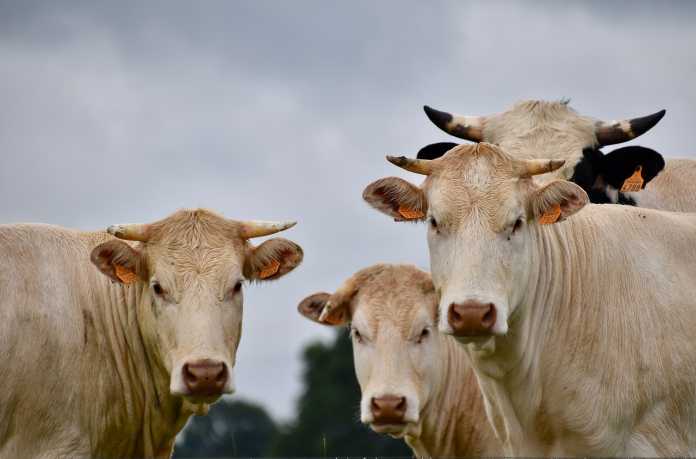A recent CNN article, “How a ‘cow fart’ vaccine could help tackle climate change,” discusses a vaccine under development to be given to cows to reduce the amount of methane their digestive processes produce. The hope is that the vaccine will significantly reduce livestock emissions, thereby slowing down climate change. It won’t. Methane from livestock contributes little, if anything, to global warming. As a result, attempting to change these animals’ biological processes seems to carry risks far exceeding any possible benefits.
CNN explains that methane is produced as grass ferments in the rumen, and claims that it is more “potent” than carbon dioxide, but does admit that it is comparatively very short-lived in the atmosphere. The author, Jacapo Prisco, goes on to claim that “livestock accounts for about a third of human-related methane emissions, which are collectively responsible for about 30% of global warming.”
Here the CNN author either misunderstands claims made about methane, or is intentionally misleading readers. The author cites the International Energy Agency (IEA) as the source of his claim concerning livestock methane emissions. The IEA does say methane is estimated to be responsible for 30 percent of global warming, a point it admits is open to debate. What it does not say, however, is that livestock emissions of methane are responsible for 30 percent of warming, which is what Prisco’s claim implies. Livestock emissions are only a small part of methane emissions attributable to human causes, much less global methane emissions as a whole. It is also important to note that the IEA’s estimates of anthropogenic (human-caused) methane emissions are much higher than most official government assessments calculate. To be clear, the IEA is not a scientific organization but rather an institution created to assess global energy supplies, stocks, and future needs – in recent years, it has strayed from its mission to become an advocate for climate activism and legislation.
Data from the EPA show that beef production only accounts for 2 percent of all greenhouse gas emissions in the U.S., with only part of that coming from methane from cows’ digestive processes. This is notable, especially since the United States produces more beef and veal than any other country. Agricultural crop production, in contrast, produces 10 percent of all U.S. greenhouse gas emissions. It is not unreasonable to assume the same is true for the rest of the world.
A recent paper written by physicists William Happer, Ph.D., of Princeton University and W. A. van Wijngaarden, Ph.D., of Toronto’s York University, explains that contrary to claims methane is some super-warmer in the atmosphere, “the contribution of methane to the annual increase in forcing is one tenth (30/300) that of carbon dioxide.” Based on that fact, the scientists conclude that “[p]roposals to place harsh restrictions on methane emissions because of warming fears are not justified by facts.”
As Climate Realism has discussed on other occasions, here, here, and here, for example, methane has a limited ability to meaningfully contribute to warming by the fact that much of the energy absorption bands affected by the gas are already covered by water vapor, which makes up a massive proportion of the greenhouse gases in the atmosphere.
As a result, methane is virtually inconsequential with regards to global warming. Current concentrations are around 1.9 parts per million (ppm). For comparison, the atmosphere contains 18 ppm of Neon, and 426 ppm CO2.
The vaccine discussed in the story does not exist yet, it is being researched by the UK’s Pirbright Institute, and has been a decade-plus effort from various research organizations, with no “tangible results as of yet,” CNN reports.
Side effects for the animal have already been hypothesized, such as “a reduction in the amount of feed that the rumen can absorb, meaning cattle might require more food, increasing costs to farmers.” Making livestock less efficient at processing food into energy and mass is a poor idea in a world where hunger is still all too common.
It seems that livestock’s digestive processes, and methane production’s role in it, is still poorly understood. Considering the fact that methane production is possibly a fundamental step in the digestive processes of rumen animals, including livestock such as cattle, sheep, and goats, it is critical to understand methane’s importance in the digestive process before tampering with it in the vain effort to mitigate climate change. This is especially true considering that the effort to control livestock emissions is a solution in search of a problem, with no tangible benefit to the world, and unknown consequences for the animals involved.
CNN misleads readers by hyping the influence methane emissions have on global temperatures, as well as the amount that animal husbandry contributes. Data show that agriculture as whole, and livestock production more particularly, have little if any impact on global climate.



















